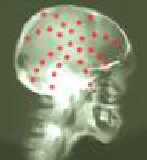 |
 |
 |

Clue to Cause of Epileptic Seizures Discovered
Finding could lead to new treatments, researchers say|
|
HealthDay
Monday, November 24, 2008
 MONDAY, Nov. 24 (HealthDay News) -- The interaction between white blood cells of the immune system and blood vessels may contribute to epileptic seizures, new research suggests.
MONDAY, Nov. 24 (HealthDay News) -- The interaction between white blood cells of the immune system and blood vessels may contribute to epileptic seizures, new research suggests.
If this turns out to be the case, such interactions may be a target for new treatments or even preventive measures for epilepsy, said researchers reporting in the Nov. 23 issue of Nature Medicine.
"This opens a window to a mechanism that we hadn't really seen in this way," said Dr. Robert A. Gross, director of the Strong Epilepsy Center at the University of Rochester Medical Center and deputy editor of Neurology. "But I'm not sure it gets us exactly where it needs us to be with human treatment."
Epilepsy affects some 1 percent of individuals globally. Yet, its causes and mechanisms are not well understood. Epilepsy remains a considerable medical mystery, and an outside expert said this revelation could be a productive avenue to pursue, or perhaps not.
The disorder causes a person to have seizures due to a surge of electrical activity affecting parts of the brain. The seizures can manifest in different ways.
Some 60 percent to 70 percent of all people with epilepsy respond well to a single medication, Gross said. Others may respond to a device or surgery.
"We have other means, but we clearly need other medicines and potentially different medicines," Gross said.
Recent research has suggested that activation of the immune system in the brain, and the resulting inflammation processes, may play a role in epilepsy.
These researchers, from the University of Verona in Italy, demonstrated that, in mice, seizures caused "adhesion" molecules in blood vessels in the brain to attach to white blood cells known as leukocytes.
Interrupting this interaction reduced seizures.
Seizures also broke down the blood-brain barrier, which works to keep various molecules out of the brain.
When investigators interfered with the leukocyte-blood vessel binding, the blood-brain "leak" was plugged.
Also, there were more leukocytes present in the brains of people with epilepsy, when compared with healthy individuals. As always with animal models, there is a question about how well the findings extend to apply to humans.
"How generalizable is this?" Gross asked.
HealthDay
Copyright (c) 2008 ScoutNews, LLC. All rights reserved.
Related News:
More News on this Date
Related MedlinePlus Pages:
| Home | Health Topics | Drugs & Supplements | Encyclopedia | Dictionary | News | Directories | Other Resources | |
| Disclaimers | Copyright | Privacy | Accessibility | Quality Guidelines U.S. National Library of Medicine, 8600 Rockville Pike, Bethesda, MD 20894 National Institutes of Health | Department of Health & Human Services |
Date last updated: 25 November 2008 |




